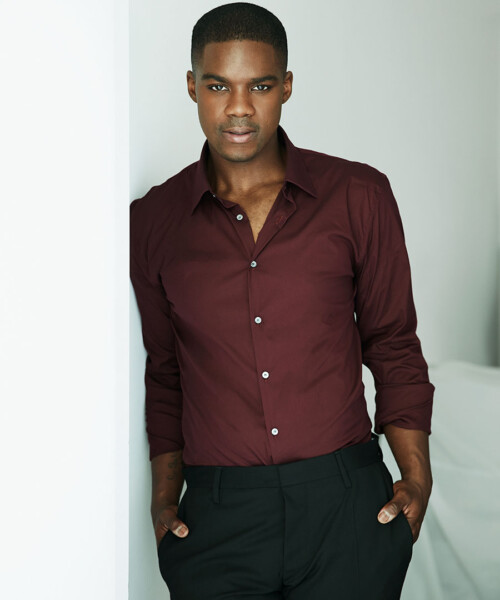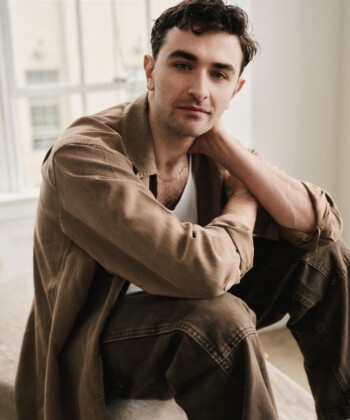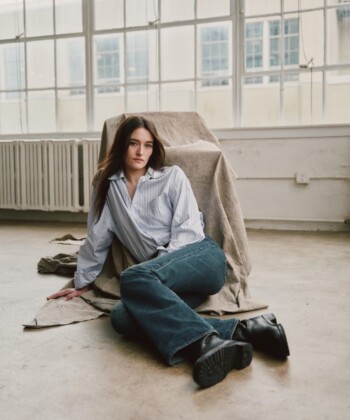Film can be an escape from reality or a window into another life, and sometimes, when we go to the movies, that’s what we’re looking for. The films that make the most indelible impression on us, though, are the ones that force us to look inward. The camera turns toward the audience; the faces onscreen become our own. Fences, the new film adaptation of August Wilson’s Pulitzer- and Tony-winning play, achieves this, as evidenced by the sobbing mob streaming from a recent early screening at Lincoln Plaza Cinema, and the blurred vision with which I took note of this.
Directed by Denzel Washington, Fences is set in the early 1950s, and stars Washington as Troy Maxson, a once-great baseball player whose athletic prime was marred by segregation. Middle-aged and world-weary but still larger than life, Troy enjoys a loving but oft-tense relationship with his wife, Rose (Viola Davis), and maintains a controlling grip on teenage son Cory, played by Jovan Adepo. It’s surprising Fences carries such relevance, but as Adepo explains during a recent phone call, it is the material’s central tenants—family and love—that allow it to defy the stagnation of time.
“Family really doesn’t change over the years,” says Adepo. “The essence of family that Denzel wanted to express throughout this film was love.” He adds, “I didn’t understand it at first, especially [the love] between Cory and Troy.”
Shortly after we’re introduced to Cory, he poses a simple question to his father: “Why don’t you like me?” This prompts Troy to explain that liking his son is irrelevant or unnecessary to his duty as a man to provide for his family. What’s missing from Cory’s question, of course, is an inquiry into whether or not his father loves him. Later, when the answer to this becomes clear, we reevaluate Troy, and in doing so, we take time to consider occasions in our own lives when perceived slights may have been roundabout gestures of love.
Adepo offers an insight Mykelti Williamson, who plays Troy’s brain-damaged brother, Gabriel, gave him on set: “Mykelti said, ‘You have to love somebody in order to be hurt by them. If you really, truly care about someone, they have the power to destroy you.’ That’s what Denzel meant when he said all this stems from love.”
The dynamicism of Denzel Washington as an actor is undeniable, and potentially intimidating, but Adepo says that the confidence Washington brought to the directorial role was crucial to his own performance. “I trusted Denzel. If I wasn’t doing what I needed to do to be truthful, and it was coming up onscreen, he would tell me.” He laughs. “If it’s me that’s holding [the shot] up, he would tell me.” He continues, “[Denzel] could have hired anybody, but he picked these people for a very particular reason.”
“Fences” is widely regarded as one of America’s greatest plays, and August Wilson is counted among Arthur Miller, Edward Albee, and Tennessee Williams as one of the country’s finest playwrights. Because of this, says, Adepo, “There was no pressure from the play itself.” The pressure, he says, “Came about from the fact that I was going to be acting in the company of greats.”
Written in 1983, the theatrical version of Fences enjoyed its first run on Broadway in 1987 and 1988, and again in 2010. The majority of the film takes place against the backdrop of a home’s backyard, and the dialogue and close-up camera work simulate a stage performance. The chemistry of the cast is no surprise—the vast majority of the actors who starred in the most recent Broadway production were retained for this adaptation. Everyone’s done this before—except Adepo.
“Stephen Henderson (who plays Troy’s best friend, Bono) liked to say, ‘We’re getting the band back together, but we’re bringing in a couple new half-chap players.’ That’s added pressure!” says Adepo. “They’re expecting you to jump in and perform at the same level as they are. You don’t want to be that weak player who’s messing up the sound that they’ve had.”
That chemistry is obvious immediately. Washington, Henderson, and Davis exchange quick-witted snark like they’ve known each other for years, and the raucous first scene is hardly indicative of any darkness to come. Even when Troy’s older son, Lyons (Russell Hornsby), shows up to see if he can borrow money, Troy gives him a good-natured ribbing. It isn’t until Cory enters that the tune turns dour—but that’s as the number was intended, and Adepo plays the part impeccably. This is a story about family, after all, which means that it’s messy, and painful, but above all, it’s strikingly real. The film, which opens Christmas Day, may be the perfect way for those estranged in all ways save for blood can begin to heal their wounds.
“Many families have dysfunctional elements, even if we may be hesitant to admit it,” says Adepo. “Seeing stories like this one gives us all an opportunity to have an open dialogue with one another about how to express love more efficiently.”






































